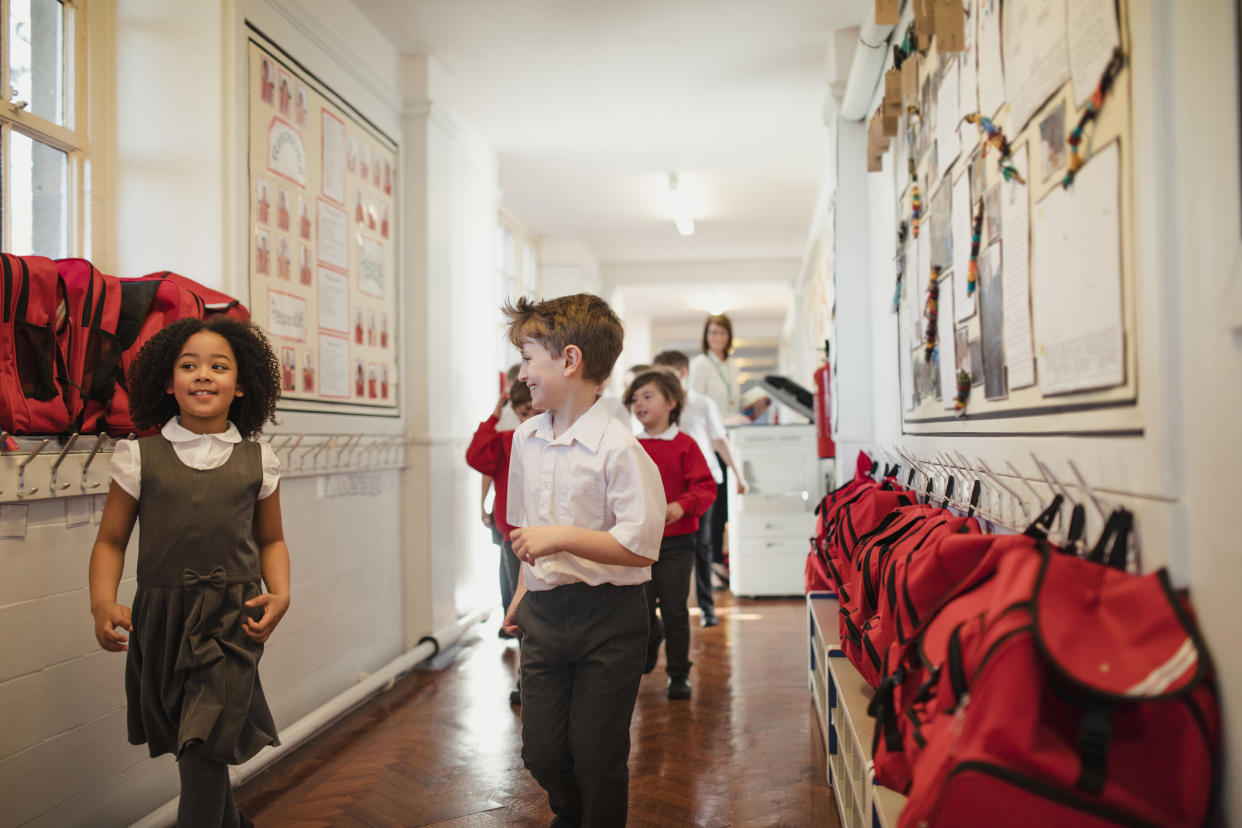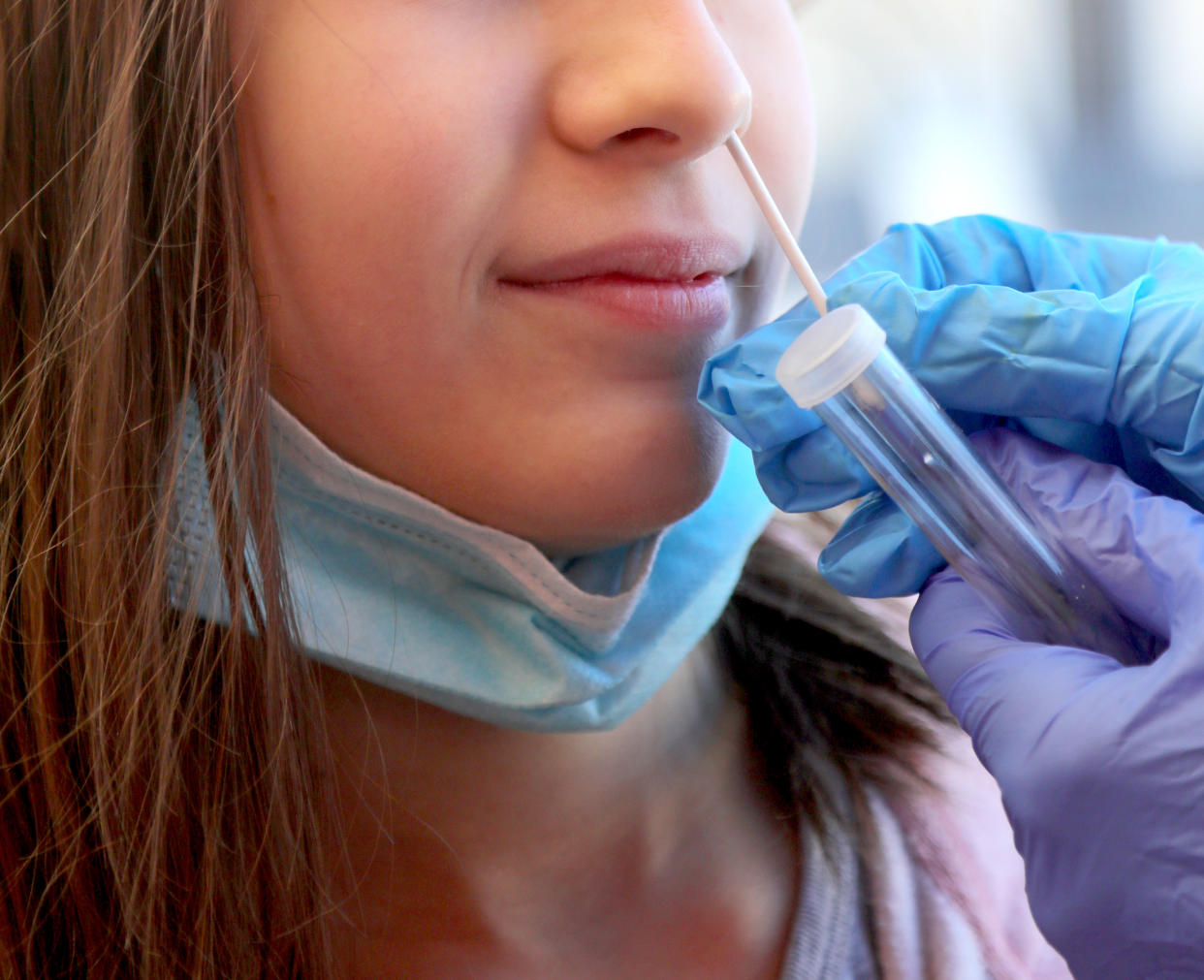What to do if your child tests positive for COVID in school

It's back-to-school time and as pupils pour through the gates of their primary and secondary schools after the summer holidays, scientific experts are unsure exactly how COVID infection rates will be affected.
In Scotland, where children have been back at school since mid-August, there has been a rise in COVID cases and schools reopening is widely believed to be a contributing factor.
With more children and adults mixing inside the classroom and the relaxing of coronavirus restrictions, it seems likely there will be an increase in the infection rate UK-wide, but much confusion remains over what to do if your child actually tests positive for coronavirus.
From whether the whole family has to isolate, to how long your child will need to remain off school, to whether the entire class also has to stay home, here's everything you need to know about a positive test in school.
England
What happens if my child tests positive for COVID?
Just the same as it was before the summer holidays, if your child tests positive for COVID, they will be required to isolate at home for 10 days.
According to government guidance, you will have to book a further PCR test for them to confirm the result, and your child should continue to self-isolate while awaiting the results.
If my child tests positive for COVID does the whole family need to isolate?
Unlike previous guidance, family members are not required to self-isolate if they live in the same household as someone with COVID-19, or are a close contact of someone with COVID-19, if any of the following apply:
they are fully vaccinated
they are below the age of 18 years and 6 months
they have taken part in or are currently part of an approved COVID-19 vaccine trial
they are not able to get vaccinated for medical reasons
If my child tests positive for COVID will the whole class have to isolate?
If your child tests positive in the school setting, it is the same as any other setting and NHS Test and Trace will work with the positive case and/or their parent to identify close contacts.
According to the government guidance, contacts from a school setting will only be traced by NHS Test and Trace where the positive case and/or their parent specifically identifies the individual as being a close contact.
"This is likely to be a small number of individuals who would be most at risk of contracting COVID-19 due to the nature of the close contact," the government site says.
Any children who have been named as close contacts will then be encouraged to take a PCR swab test, but close contacts will not have to self-isolate unless they test positive for the virus.

Scotland
If your child tests positive for COVID they must self-isolate in line with NHS Inform guidelines.
If a positive coronavirus case is identified in school, the school should be contacted by Test and Protect to identify potential close contacts. Parents will then be sent a “warn and inform” letter about the case.
The definition of a close contact in Scotland has recently changed, however, and will no longer include students in the same classroom.
Instead, guidance from the Scottish government says that close contacts are likely to be parents and siblings, those who have stayed overnight and those who have had “clear, prolonged contact”.
If your child is identified by NHS Test and Protect as a close contact, they will have to self-isolate immediately and book a PCR test.
If the PCR test returns negative and your child does not have symptoms, they can return to school, but if it is positive, they will have to stay in self-isolation in line with NHS guidance.
Watch: Campaign launched to encourage students to get tested regularly
Wales
If your child comes back with a positive test for COVID, the Test, Trace and Protect (TTP) system will start to advise self-isolation and identify close contacts.
According to government guidance all adults who have been fully-vaccinated, or those under 18, are no longer required to self-isolate if they are identified as a close contact of someone who has tested positive for coronavirus.
Children who have been identified as a close contact, but do not have COVID symptoms and have not been advised to self-isolate can continue to attend school.
They will, however, be encouraged to take a PCR test and will have to self-isolate if the test comes back positive.
If your child does not have symptoms and has not been advised to stay home/self-isolate by TTP then they can attend the school.

Northern Ireland
All students in Years Eight to 14 and school staff are encouraged to take part in voluntary testing, which is offered twice weekly and can be carried out at home.
If a child tests positive, parents are encouraged to seek a PCR test from a local testing centre, which if positive will mean the pupil and their whole household will be required to self-isolate for 10 days.
Following changes to guidance, school pupils will not have to self-isolate after coming into contact with a coronavirus case if they have recently tested positive for the virus themselves.
As long as a pupil is well, guidance from the Public Health Agency (PHA) recommends they can stay in school but must avoid visiting care homes and hospitals.
"Pupils who are close contacts but have already had a positive test result in the previous 90 days and have no new symptoms do not need to arrange a polymerase chain reaction (PCR) test or self-isolate," the PHA guidance for schools states.
"This is because it is possible for PCR tests to remain positive for some time after COVID-19 infection due to residual virus fragments (which are not infectious)."
If a school pupil has been identified as a close contact of a positive case and has no symptoms but has not had a positive PCR test in the previous 90 days they are advised to self-isolate until they have taken a PCR test.
If the PCR test is negative they can return to school and do not have to self-isolate for 10 days.
It is recommended, however, that they take another PCR test on day eight.
The guidance is different for pupils under four years old in nursery schools.
If parents are told their child is a close contact, they will be advised to arrange a PCR test for them but they can continue to go to pre-school or nursery.
"In this age group, testing is voluntary and provided the child has no symptoms they do not need to self-isolate and can attend nursery even if they do not take a test," says the PHA in its guidance.


